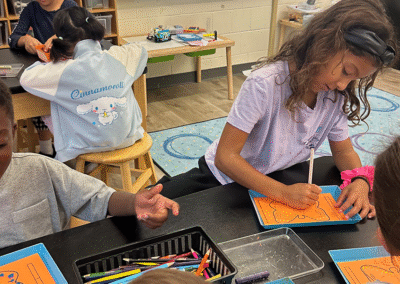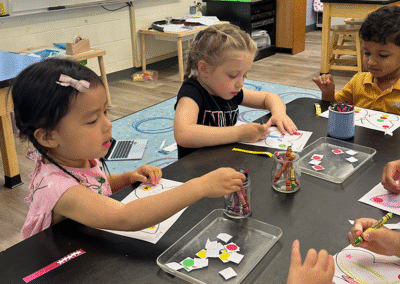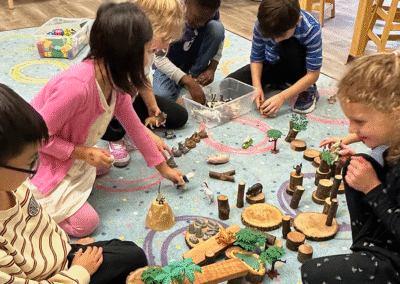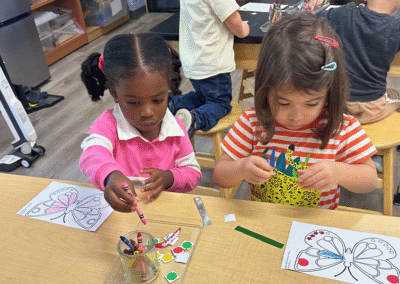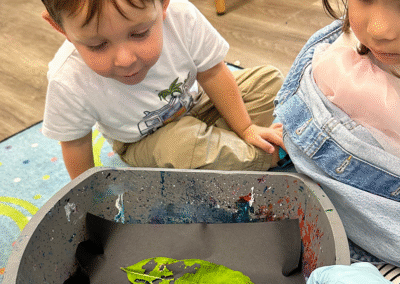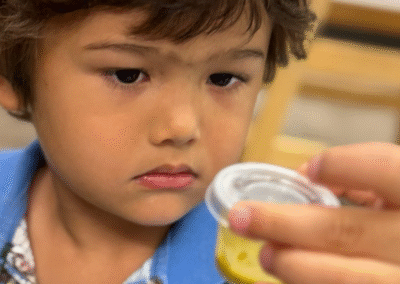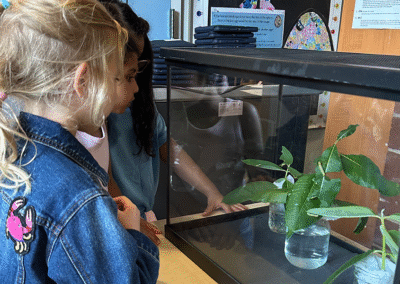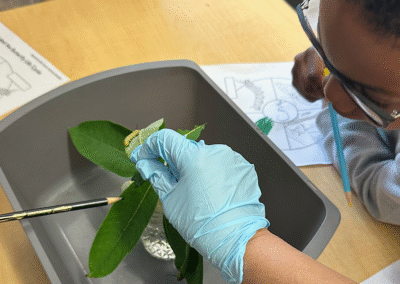The Role of Exploration in Developing Young Scientists
Submitted by Julie Pugkhem PreK3-1st Grade Science Teacher
“I sincerely believe that for the child, and for the parent seeking to guide him, it is not half so important to know as to feel. If facts are the seeds that later produce knowledge and wisdom, then the emotions and the impressions of the senses are the fertile soil in which the seeds must grow. The years of early childhood are the time to prepare the soil…It is more important to pave the way for the child to want to know than to put him on a diet of facts he is not ready to assimilate.”
― Rachel Carson, The Sense of Wonder
As educators and adults in children’s lives, we can draw inspiration from the above quote written by Rachel Carson, an American marine biologist and conservationist. Young children are natural scientists, driven by curiosity and an innate desire to understand the world around them. Nurturing exploration in children, both indoors and outdoors, helps provide a strong foundation for developing scientific thinking, problem-solving skills, and a lifelong love of learning.
Adapted from the National Association for the Education of Young Children (NAEYC), here are ways to support children’s science learning through exploration:
- Go for a sensory walk together. Talk with your child about what they can observe with their five senses. Let your child touch, explore, and experience nature directly.
- Encourage questions rather than providing answers. Respond with “What do you think?” or “I don’t know, but we can find out together” to stimulate inquiry and investigation.
- Value your child’s sense of awe over factual knowledge. When your child sees a butterfly, celebrate their wonder rather than focusing on its scientific name. Then ask follow-up questions like, “What other things have wings like a butterfly?” or “Can they also fly?”
- Plant seeds or bulbs and observe changes over time. Notice and discuss what happens to trees, plants, and animals as the seasons change.
- Invite opportunities for inquiry and exploration. Science learning begins with curiosity. Allow for messy outdoor exploration with mud, sticks, and other natural materials, or engage your child in investigations like rolling different balls down a hill to see which travels fastest and farthest. Ask your child to make predictions before experimenting and discuss the results afterward.
Over the past few months, it has been a joy to join our lower school students in their discoveries and investigations. Sharing in their excitement about the wonders of our D-E environment has been truly inspiring! Please enjoy the photos below of the students engaging in explorations this semester.

